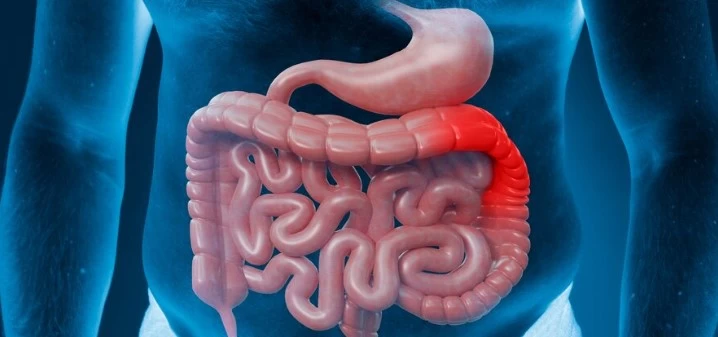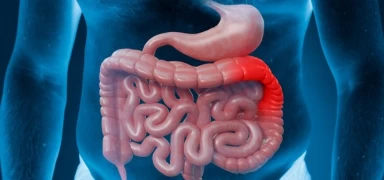
Crohn's Disease
- Crohn's Disease
- Symptoms and Diagnosis of Crohn's Disease
- How is Crohn's Disease Diagnosed?
- What Causes Crohn's Disease?
- Treatment Options for Crohn’s Disease
- Conclusion:
Crohn's disease is one of the inflammatory bowel diseases (IBD) that causes chronic inflammation in any part of the digestive system (most commonly the end of the small intestine and the colon). This condition typically appears in young adults and adolescents but can occur at any age. Crohn's disease can significantly impact the quality of life of affected individuals, requiring a multidisciplinary treatment approach.
Symptoms and Diagnosis of Crohn's Disease
The symptoms of Crohn's disease can vary from person to person and depend on the areas of the digestive system affected. Common symptoms of Crohn's disease include:
- Abdominal Pain: Often localized in the lower right quadrant or around the belly button. The pain is usually chronic and may intensify during flare-ups.
- Diarrhea: Chronic diarrhea is a common symptom of the disease. The diarrhea may sometimes be bloody and can occur frequently, even waking the patient at night.
- Weight Loss: Diarrhea can reduce nutrient absorption, and the increased energy expenditure of the disease may lead to weight loss.
- Fever: May occur during flare-ups and often exceeds 38°C (100.4°F).
- Loss of Appetite and Fatigue: Common symptoms in chronic illnesses. Loss of appetite can contribute to weight loss.
- Perianal Symptoms: Symptoms such as pain around the anus, fistulas (infected tubes forming at the anus), and fissures (anal tears) may occur.
- Small Bowel Obstruction Symptoms: In rare cases, symptoms such as nausea, vomiting, and abdominal bloating may result from inflammation or thickening of the intestines caused by the disease.
- Skin Symptoms: Crohn's disease can sometimes cause inflammatory skin lesions, such as erythema nodosum.
The symptoms of Crohn’s disease may vary depending on the course, location, and severity of the disease.
How is Crohn's Disease Diagnosed?
The diagnosis of Crohn’s disease is usually made through a combination of clinical findings, imaging techniques, and laboratory tests. The diagnostic process is generally managed by a specialist gastroenterologist and may include the following steps:
- Patient History and Physical Examination:
- Detailed listening to the patient’s complaints.
- Assessment of family history, previous illnesses, and lifestyle factors.
- Examination of the abdomen and other physical findings.
- Laboratory Tests:
- Blood Tests: Inflammation markers such as erythrocyte sedimentation rate (ESR) and C-reactive protein (CRP) may be elevated.
- Complete Blood Count: There may be signs of anemia or other blood cell changes.
- Electrolytes and Liver Function Tests: Crohn's disease may sometimes cause alterations in these values.
- Imaging Methods:
- Colonoscopy and Biopsy: This is the most commonly used method. The colon’s inner surface is visualized with a colonoscope, and biopsy samples are taken for microscopic examination in the lab. This helps determine the severity of the inflammation and the location of the disease.
- Upper Gastrointestinal Endoscopy: If the disease involves the stomach or esophagus, these areas may also be examined.
- MR Enterography or CT Scan: Used to evaluate inflammatory changes and complications in the intestines.
- Other Tests:
- Capsule Endoscopy: A swallowed capsule can be used to visualize the small intestines.
- Radiological Imaging: This can be used to evaluate conditions such as intestinal obstruction or fistula formation.
- Additional Evaluations:
- If there are perianal fistulas or fissures, these conditions are also assessed.
- Dermatological or eye examinations may be performed to evaluate extraintestinal symptoms, such as erythema nodosum or uveitis.
The diagnosis of Crohn’s disease is made through one or several of the above methods. Early diagnosis and an appropriate treatment plan are important for managing the disease’s course and preventing complications.

What Causes Crohn's Disease?
Although the exact cause of Crohn’s disease is unknown, some significant factors that may contribute to its development include:
- Genetic Predisposition: Crohn’s disease may have a familial pattern. Individuals with a family history of the disease are at higher risk. This is associated with genetic changes in certain genes (e.g., the NOD2 gene).
- Immune System Disorders: Crohn’s disease is considered an autoimmune disease, where the immune system attacks the lining of the intestines, causing inflammation.
- Environmental Factors: Environmental factors are thought to increase the risk of Crohn’s disease. Smoking, a Western diet (high in fats and processed foods), certain medications (such as antibiotics), stress, and various infections may contribute to the development of the disease.
- Gut Microbiota: The balance and diversity of microorganisms in the gut, known as the gut microbiota, can influence the risk of Crohn's disease. Imbalances in the gut microbiota or the overgrowth of certain bacterial species may play a role in the disease's development.
- Other Factors: Some studies suggest that the long-term use of non-steroidal anti-inflammatory drugs (NSAIDs), oral contraceptives, or other drugs affecting the intestines may increase the risk of Crohn’s disease. However, the exact mechanisms and effects of these factors are still being studied.
While the causes of Crohn's disease are not fully understood, genetic predisposition and environmental factors are believed to play a critical role in its development.
Treatment Options for Crohn’s Disease
The treatment plan for Crohn’s disease is usually determined based on the severity of the disease, the type of symptoms, the patient’s overall health, and their response to treatment. The goal of treatment is to control symptoms, induce remission, and prevent disease progression or slow its advancement. Here's an overview of the treatment options:
- Medications:
- Anti-inflammatory Drugs: Aminosalicylates (such as mesalazine and sulfasalazine) are used for mild to moderate flare-ups of the disease.
- Corticosteroids: Used for severe flare-ups or when other medications have not been effective. These should be used for the short term due to potential side effects from long-term use.
- Immune Modulators: Drugs like azathioprine and methotrexate suppress the overactive immune system response. These are often used for chronic management.
- Biologic Agents: Drugs like infliximab and adalimumab are used for severe and resistant flare-ups. They work by directly affecting the immune system to reduce inflammation.
- Antibiotics: Used in specific cases such as perianal fistulas or bacterial overgrowth.
- Nutritional Therapy:
- In some patients, special nutritional plans can help alleviate symptoms or induce remission. For example, enteral nutrition (liquid diets or supplements) may be effective in controlling the disease.
- Surgical Treatment:
- Surgical intervention may be required in cases of Crohn's disease complications (e.g., bowel obstruction, fistulas, abscesses). Surgery typically involves removing or repairing the affected part of the intestines.
- Supportive Care:
- Other medications (such as antidiarrheal agents and pain relievers) are used to manage symptoms.
- Nutritional counseling and vitamin/mineral supplements may be provided.
- Patient Education and Follow-up:
- Patients should be educated about the disease, recognize symptoms, and adhere to their treatment plans.
- Regular health check-ups and monitoring are essential for tracking disease progression and revising treatment plans as needed.
While Crohn’s disease is not curable, proper treatment and management strategies can help control symptoms and slow disease progression. The treatment plan should be personalized for each patient and managed by a specialist gastroenterologist.
Conclusion:
Crohn’s disease is a complex gastrointestinal condition that can be controlled with a multidisciplinary approach involving treatment and management strategies. Early diagnosis, appropriate treatment, and patient education can improve the disease’s course and enhance patients' quality of life. Understanding symptoms and treatment options is essential for patients and healthcare professionals to collaborate effectively in managing the condition.

Dr. Ömer Faruk Yolcu,
Gastroenterology Specialist





